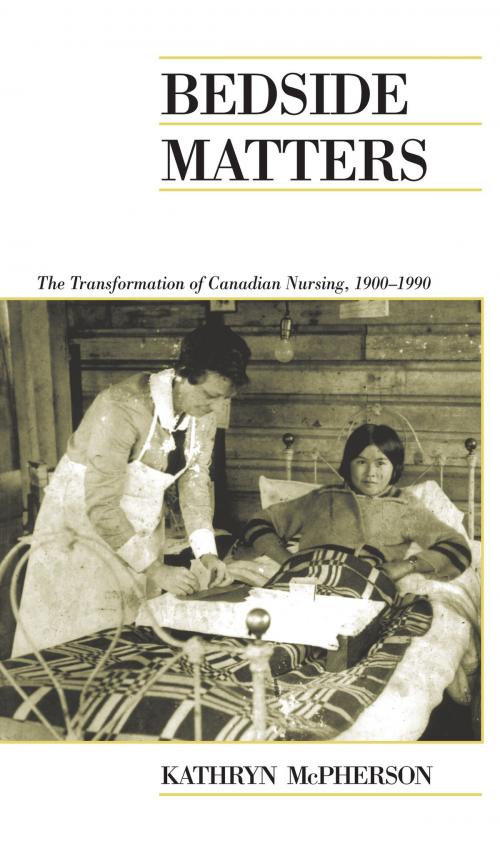Bedside Matters
The Transformation of Canadian Nursing, 1900-1990
Nonfiction, History, Canada, Americas, Native American| Author: | Kathryn McPherson | ISBN: | 9781442658905 |
| Publisher: | University of Toronto Press, Scholarly Publishing Division | Publication: | December 15, 2003 |
| Imprint: | Language: | English |
| Author: | Kathryn McPherson |
| ISBN: | 9781442658905 |
| Publisher: | University of Toronto Press, Scholarly Publishing Division |
| Publication: | December 15, 2003 |
| Imprint: | |
| Language: | English |
Nursing embodies the seemingly timeless characteristics of feminine healing, caring, and nurturing, yet this archetypally female vocation also boasts a distinctive and complex history. Bedside Matters traces four generations of Canadian nurses to explore changes in who became nurses, what work they performed, and how they organized to defend their occupational interests. Whether in the apprenticeship method of the early twentieth century or in the present day restructuring of hospital work, the position of nurses within the health-care system has been structured by class, gender, and ethnic and racial relations. Located between the doctors and untrained or subsidiary patient-care attendants, nurses have struggled to define the boundaries of their occupation vis à vis other members of the health-care hierarchy, even as tensions between bedside and administrative nurses created divisions within nursing itself.
Focusing on the daily labours of 'ordinary nurses', McPherson argues that the persisting sex-typing of nursing as women's work has meant that gender consistently complicated nursing's easy categorization as either professional or proletariat. Combining archival records and oral histories, the author shows how nurses, in their work, activities, and social and sexual attitudes, sought recognition as skilled workers in the health-care system.
Previously published by Oxford University Press
Nursing embodies the seemingly timeless characteristics of feminine healing, caring, and nurturing, yet this archetypally female vocation also boasts a distinctive and complex history. Bedside Matters traces four generations of Canadian nurses to explore changes in who became nurses, what work they performed, and how they organized to defend their occupational interests. Whether in the apprenticeship method of the early twentieth century or in the present day restructuring of hospital work, the position of nurses within the health-care system has been structured by class, gender, and ethnic and racial relations. Located between the doctors and untrained or subsidiary patient-care attendants, nurses have struggled to define the boundaries of their occupation vis à vis other members of the health-care hierarchy, even as tensions between bedside and administrative nurses created divisions within nursing itself.
Focusing on the daily labours of 'ordinary nurses', McPherson argues that the persisting sex-typing of nursing as women's work has meant that gender consistently complicated nursing's easy categorization as either professional or proletariat. Combining archival records and oral histories, the author shows how nurses, in their work, activities, and social and sexual attitudes, sought recognition as skilled workers in the health-care system.
Previously published by Oxford University Press















